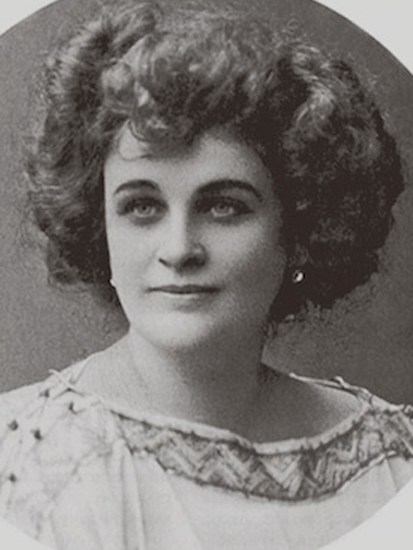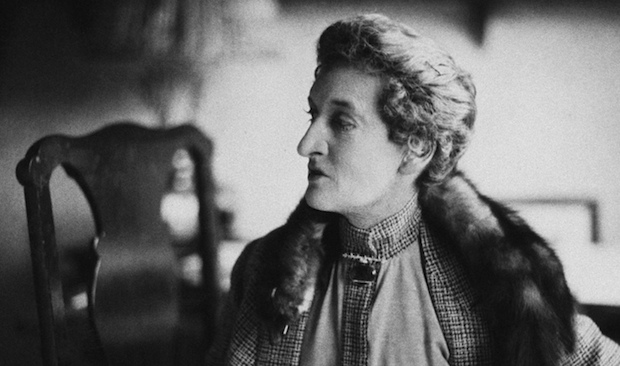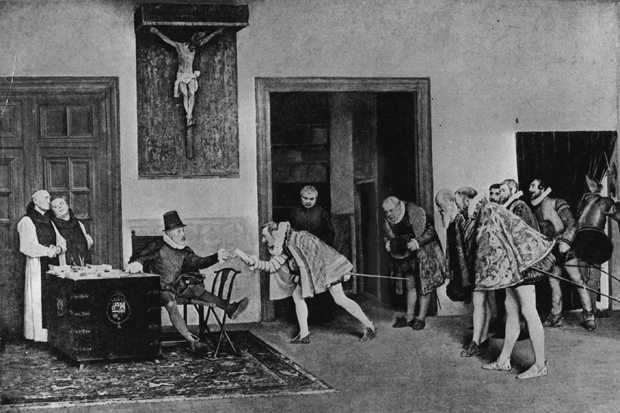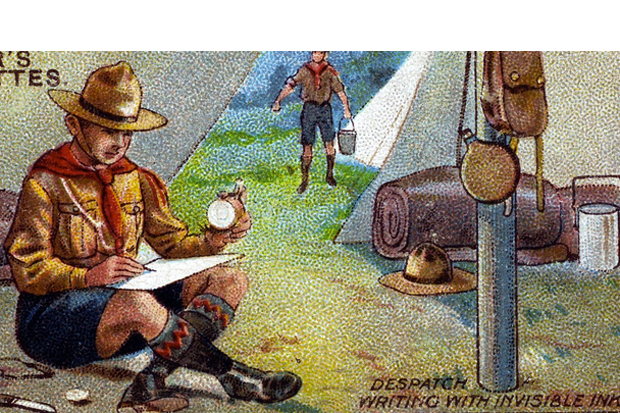Nadezhda Alexandrovna Lokhvitskaya was a literary celebrity in pre-revolutionary St Petersburg. She chose the pen-name ‘Teffi’ because it was androgynous, and because it was the kind of name a ‘lucky’ fool would have; in Russia, fools were held to tell truths, albeit obliquely. ‘Teffi’ wrote for newspapers, most notably the Russian Word. By 1911 she was writing more fiction than journalism; her short story collections achieved instant popularity. In 1919 the Russian Word was closed down. Teffi was evacuated, ending up, like so many ‘lesrusses’, in Paris. She never returned to Russia, except in her stories.
Teffi’s fame evaporated almost immediately after her death in 1952. Pushkin Press has issued a newly translated selection of her stories in a neat, chunky little volume. The stories follow both Teffi and Russia through their cataclysmic half century. Despite almost unimaginable changes, the essence of both the author and her mother country survives.
Teffi’s early reputation was as a comic writer, but it must be said that something is lost in translation. Zoshchenko, the great Soviet humorist, wrote, ‘Just try retelling one of her stories, even the funniest, and it will no longer be funny’, and it casts no aspersions on the six translators to report that this is usually the case. Teffi’s wit, sometimes Saki-esque, is always evident, but her characters — bullied servants, alcoholics, neglected children, ageing peasants — teeter on the edge of an abyss. ‘The Lifeless Beast’ is one of the best accounts I’ve read of a child damaged for life by adult cruelty, but the pain is too real to be funny
After the Revolution, the abyss yawns wider. Teffi’s satire becomes more blatant as the social order is reversed — ‘the cabby was a good one, even if he was a former botany professor’ — and the arts are used as a frantic distraction from the reality of living on horsemeat or flatbread made from face cream or window putty. Not every ‘story’ is fiction. Teffi’s description of her real-life meetings with Rasputin is one of the most striking sections in the book. She recognises that the best way to convey the strangeness of ‘that black, bent, terrible sorcerer’ is to present the encounters in the guise of fiction: ‘he lived in legend, he died in legend, and his memory is cloaked in legend’.
Some of the stories written in Paris draw on memories — never sentimental — of the Russia of Teffi’s youth. ‘My First Tolstoy’ (again, based on truth) tells how, aged 13, she called on the old writer to beg him to spare the life of Prince Andrei: ‘a living person dies once, but Prince Andrei was dying forever, forever’. Others portray the quiet desperation of ‘lesrusses’ in exile: ‘we stick together… not like planets, by mutual attraction, but by a force quite contrary to the laws of physics — mutual repulsion.’ The title story, ‘Subtly Worded’, is the most overtly political. Letters reaching the exiles from those left behind in the newly formed Soviet Union are obliged to invert truth in Orwellian fashion: ‘Everything’s splendid here. Anyuta has died from a strong appetite… Misha Petrov led a secluded life for only two days, then there was a careless incident with a firearm he happened to be standing in front of. Everyone feels awfully delighted.’ Teffi’s reply to a letter from her brother is doctored by a barrister until ‘the letter can be sent with no risk at all. You’re safe and sound, and the recipient will remain alive. Everything is in order and subtly worded.’
In the 1930s, Teffi began to use the para-normal in her stories to reveal psychological truths. For her, the ancient Slavic gods still shaped the Russian psyche ‘in legends, superstitions, customs. It’s all as I found it, in the Russian provinces, as a child.’ ‘And Time Was No More’, the last story in the collection, is one of the most remarkable. It feels as if it was written on the narrator’s deathbed as her morphine-altered consciousness flickered between past and present.
To the last, this clever, subtle, humane woman observed the narrative of her own life with a certain literary detachment. ‘An anecdote is funny when it’s being told, but when someone lives it, it’s a tragedy. And my life has been sheer anecdote, that is — tragedy,’ she wrote not long before her death. Great credit is due to Pushkin Press and to the team of translators for their attempt to restore this remarkable writer to her rightful status.
Got something to add? Join the discussion and comment below.
Get 10 issues for just $10
Subscribe to The Spectator Australia today for the next 10 magazine issues, plus full online access, for just $10.
Available from the Spectator Bookshop, £11. Tel: 08430 600033
You might disagree with half of it, but you’ll enjoy reading all of it. Try your first month for free, then just $2 a week for the remainder of your first year.














Comments
Don't miss out
Join the conversation with other Spectator Australia readers. Subscribe to leave a comment.
SUBSCRIBEAlready a subscriber? Log in